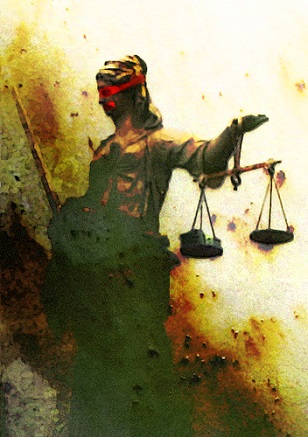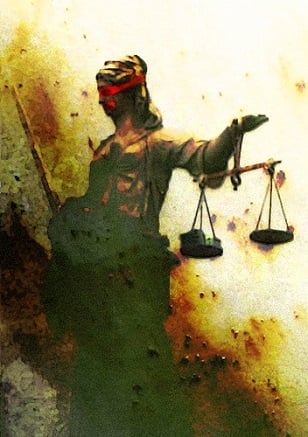 Jared Rodriguez / Truthout; Adapted: LizaP)” width=”308″ height=”437″ />(Image: Jared Rodriguez / Truthout; Adapted: LizaP)On Friday, John DeLong, the top NSA official in charge of making sure that NSA analysts comply with rules and regulations protecting the privacy of Americans, responded to reports that the NSA had frequently violated privacy rules.
Jared Rodriguez / Truthout; Adapted: LizaP)” width=”308″ height=”437″ />(Image: Jared Rodriguez / Truthout; Adapted: LizaP)On Friday, John DeLong, the top NSA official in charge of making sure that NSA analysts comply with rules and regulations protecting the privacy of Americans, responded to reports that the NSA had frequently violated privacy rules.
Speaking to reporters on a conference call, DeLong was responding to the Washington Post’s report that a leaked internal NSA audit revealed there had been 2,776 “incidents” of violations in a one-year period.
DeLong told reporters that the majority of violations were unintentional human or technical errors, and that the number of intentional errors by NSA analysts was “minuscule,” involving only a couple over the past decade.
While Mr. DeLong’s classifying of these thousands of NSA privacy violations as “minuscule” is fairly disturbing, it does raise the question: What crimes are considered “minuscule” in America, but are still fully prosecuted under the law?
For instance, shoplifting a piece of jewelry from a department store is usually considered a small or “minuscule” crime. But, the majority of the time the thief is still arrested and prosecuted under the law, and given a punishment ranging from a fine and community service to jail time.
What about assault? If a husband slaps his wife around, that’s fairly “minuscule” compared to stabbing or shooting her, right? Even so, the husband is still usually arrested, charged with assault and/or battery, and punished for his crimes.
Then there are those annoying parking and driving violations that we all hate to get. Even though parking in a space with an expired parking meter seems like it’s “minuscule,” more often than not, a parking enforcement officer will still hand you a ticket and a fine.
Similarly, while driving a few miles per hour over a posted speed limit may seem “minuscule,” speed cameras will still catch you, and you’ll find a ticket in your mail within a matter of weeks.
Finally, what if a thief steals a person’s credit card, which has a $30,000 spending limit on it, but only charges $100 on the card before he or she is caught? While that may seem “minuscule,” the thief will almost certainly be arrested, charged with credit card fraud or identity theft, and handed down heavy fines and jail time.
The point to all of this is that in the American justice system, even if a crime is considered to be “minuscule,” the perpetrator is still arrested and punished.
But, under Mr. DeLong’s logic, he would have us do away with all of these “minuscule” crimes, and let the people who commit them go unpunished. America would quickly turn into a shoplifter’s and parking violator’s paradise.
While our justice system has failed miserably at sending banksters to jail over the past several years, when it’s at its best, all Americans are held accountable for their crimes, no matter how petty or “minuscule” those crimes may seem, and no matter how powerful or influential their perpetrators may be.
And that should include our government.
We must hold our government, the people who have the power to throw us in jail, to the same standard as the rest of us.
If there have been 2,776 incidents of NSA analysts violating the privacy rights of Americans over the past year, then everybody from the analysts to the head of the agency should be held accountable for their actions.
No one should be above the law in America.
Join us in defending the truth before it’s too late
The future of independent journalism is uncertain, and the consequences of losing it are too grave to ignore. To ensure Truthout remains safe, strong, and free, we need to raise $46,000 in the next 7 days. Every dollar raised goes directly toward the costs of producing news you can trust.
Please give what you can — because by supporting us with a tax-deductible donation, you’re not just preserving a source of news, you’re helping to safeguard what’s left of our democracy.
